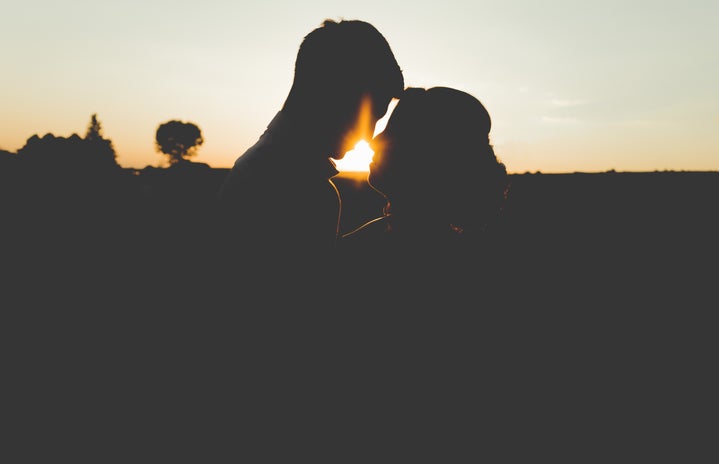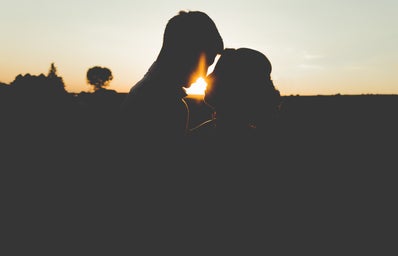I could start this by addressing the fact that we finally live in a decade where having a mental illness is not something to be ashamed of. Technically. It shouldn’t be, right? I mean, we have tons of films, TV series, books, podcasts and even TED talks doing their best to normalise mental illnesses. We urge people to ask for help, to reach out, to seek professional advice when things seem too difficult; we see celebrities advocating to normalise these black holes – that’s how I describe them – so people aren’t afraid to speak. We are trying, for real.
Then why is it still so hard sometimes?
In the race to always be on top, we tend to forget how to take care of ourselves; we do the best we can and we’re told it’s still not enough, that we could always do and be more. Constantly. Your messy room, your takeaway boxes left on the bedside table for days are your best punchline with your friends, because it’s easier to just be told that you’re lazy than to ask for help sometimes.
Living with a mental illness is like walking with two heavy bags in a world full of runners, wondering why you can’t ever reach home, why you can’t keep up with people around you, why you can’t just let this massive weight go. Everything is always a bit different, a bit harder. Even relationships – especially relationships. Because loving someone who is struggling with mental illness can be frustrating, and at times even heartbreaking.
We’re told since childhood that love can heal everything, that love wakes up princesses who are victims of a magic spell. We are taught that love is the answer, that love is the cure. Yet, if there is something that I have learnt whilst being in a relationship with someone who struggles with mental illness, it’s that we can’t cure those we love. We can blow on their wounds, stitch them up after a fall hoping it won’t hurt as much next time, we can try to prevent the pain, but we can’t heal them forever.
We can’t save them and, personally, I think that is the hardest part; the realisation that no matter how hard we try, how many flowers and chocolates we buy, how many beautiful days we organise, how many sunsets we’re lucky enough to share together, our love cannot be the answer. It took me so long to finally accept that.
I have always been that person, the one people would come to when they’d have an issue. The one that always had the right words, the right advice. My empathy – once my biggest strength – in this relationship has become the source of my frustrations. It is so hard to accept the fact that we can’t save people (at least not how we wish to), and it is even harder to not feel guilty for it.
I would be lying if I said that I have stopped doubting myself and what I give to my partner. For me, it’s still difficult to get over the fact that there is something that makes the person I’ve promised to make happy, so sad just out of the blue sometimes. I spent too many nights wondering what I had done wrong, what wasn’t working in me. I would tell myself that I wasn’t giving enough, that I wasn’t trying enough, just so that I had someone to blame.
Yet there was nothing more I could possibly give, not without breaking myself too. It wasn’t my fault. I didn’t know at the time, but it wasn’t my fault. It is not our fault if the people we love can’t be happy sometimes, if they feel this big pain inside their chest. We aren’t the cause; we aren’t the solution either. We are there to help them, to make their life a bit easier, to try and show them that a bad day is just a bad day sometimes, that there is so much more in life. And if they let us, if we feel like we’re strong enough, we may help them carry those bags, to let them rest for a little bit.
Love shouldn’t hurt, but I know at times it does. We’re entitled to feel hurt and frustrated and angry. We may not be the ones with a diagnosis, but we can still feel things: we suffer, we cry and laugh and love with them. I wish someone had said this to me, and that’s the reason why I am writing this right now: just because we don’t experience their pain, just because we are not ill, it doesn’t mean we aren’t allowed to feel hurt.
Our pain comes from the feeling of powerlessness, from the frustration of not being able to save them from that black hole in their head. It is definitely a different sort of pain and in no way it is caused by those who struggle. Rather, it is the ugly face of the coin, the consequence of loving someone who can’t love themselves.
Sharing days with my partner is my favourite thing to do. Being in love and loved the way I am is truly a privilege, regardless of the dark that seems to surround his room sometimes. We both try our best not to let it destroy the beauty, kill the flowers we give to each other. Some days it works better than others. Some days it’s easier, some days feel like losing. But that’s fine, I think.
I’ve learnt that taking a step back doesn’t mean giving up. We’re allowed to feel overwhelmed, to feel like we need some space. We all deal with feelings in a different way: when my partner would isolate himself, away from everything, I couldn’t help but feel a bit hurt. I didn’t understand at times but sometimes even a text can be a bit too much, a bit too loud. The best thing we can do in this situation is to give space whilst keeping them aware of our support and love, no matter how deep the hole is. To tell them we’ll be right there waiting for them, and it’s okay if they need space and time.
We may not totally empathise with their way of dealing with it, we may feel a bit rejected. But, we must remember that healing takes patience and, if they need some time for themselves, we must accept that. We will never fully understand the words in their head, the silent pain behind their actions, so we shouldn’t judge the way they cope with it.
As unpredictable as it can be, communication really is the key. My mother always says that a healthy relationship is also made of uncomfortable talks, therefore we shouldn’t be scared to set boundaries and speak out when needed. We can’t fully be happy if we don’t feel understood, and we can’t feel understood without sharing our feelings.
Of course, the effort must come from both sides: everyone should give what they can, everyone should be honest about what they feel, what they are able to share. And it’s okay if things don’t work out, if we feel like what they are willing to give is not what we are looking for. We shouldn’t stop loving ourselves for anyone. Rather, we should learn how to love ourselves better, in a more healthy way.
My partner has helped me see things in myself I would have never considered otherwise. He has helped me fall in love with who I am, he made me accept my flaws, my insecurities. In this sense, loving someone also means helping them love themselves. We can’t save them, but we can try to ease the pain. We can hold their hand, walk with them. If we can’t carry their burden, we can make the journey a bit sunnier, a bit easier.
Healing often requires professional help; help we can’t provide. That doesn’t mean they don’t need or deserve love. It’s probably the opposite. They need someone who can show them how beautiful they are, that their mental illness does not define them, that they are much more than a diagnosis. They need someone who can love them when they feel there is nothing to love.
And I am aware of the fact every single relationship is different, that we as people act and think differently and there isn’t really a manual for this. The best advice I can give to those who feel like they can relate to me is to not look for something (or someone) to blame. You won’t find it. It is not your fault if the person you love can’t feel happiness sometimes. They are trying their best, and so are you.
Do not lose yourself trying to save someone else, it won’t work. We are not meant to be saviours, we are meant to be partners, to be lovers. And loving means kissing the wounds and embracing the scars, not hurting ourselves while trying to prevent them from the pain. We can’t always protect them from their demons, but we can be there when they’ll need a safe place. And I am sure that will be enough.
Words by: Caterina Bertini
Edited by: Laura Murphy


